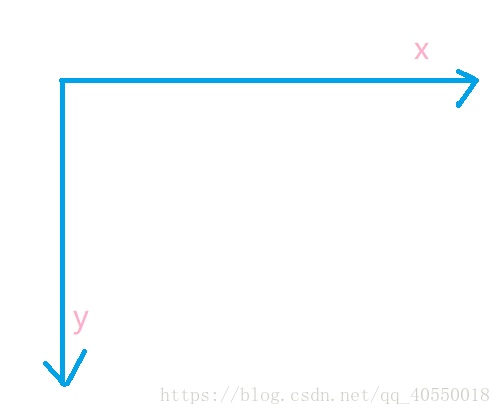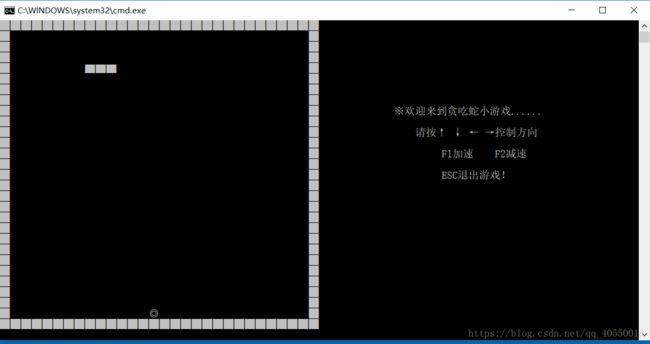贪吃蛇小游戏
贪吃蛇介绍
贪吃蛇是一款很老的游戏了,大家一定都玩过,我们一起写个简单的贪吃蛇游戏吧。
本款贪吃蛇的规则如下:
1.不能撞自己
2.不能撞墙
3.蛇吃食物的时候,自身要长一截
4.可以通过用户控制对蛇加速和减速
5.更重要的一点是游戏当然得有加分。
这里我们可以从MVC的角度考虑(Model View Controller)
Model :数据结构/结构体,就是整个游戏的结构
View : UI Console/Web/MFC,在这里指用户界面,就是我们我们表面看到的
Controller : 控制流程 算法/函数,这里指的是整个游戏的运行
Model层
Model层,我们需要对游戏初始化,这就涉及了蛇的初始化以及食物的初始化了,我们规定蛇的初识长度为3,是以链表的方式进行存储,初始化蛇的时候要注意以上规则的前两点,而初始化食物也需要注意一下三点:
食物初始化的原则:
1.不能和蛇重叠
2.不能出墙
3.要有随机性
Model.h
#pragma once
#includeModel.c
这里我们需要注意:蛇是以链表的形式存储的,但是蛇头是链表的尾,而蛇尾是链表的头,这里听起来可能有点绕,但理解起来并不是很困难。
#include "Model.h"
#include "View.h"
#include Controller层
在这一层我们开始考虑运行游戏,以RunGame()展开,先获取蛇的方向,然后判断蛇是否会迟到食物,或者撞到自己,撞到墙…一系列情况。主要代码如下:
Controller.c
#include "Model.h"
#include "View.h"
#include View层
在这一层,我们将实现游戏的美观,就是简单的呈现出一个界面(虽然界面有点low),我们会看到墙,看到蛇,看到食物。
注意,我们坐标是x轴正方向向右,y轴正方向向下,如下图:
View.c
#include "Model.h"
#include 在整个过程中,我们用到了一些新的函数,例如:控制方向的,这就涉及到了句柄的概念,还有隐藏光标的,放置光标的函数,这些不用深究,简单了解即可。

